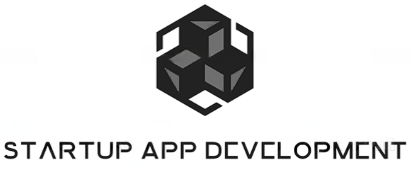Starting your journey as a startup app developer can be both exciting and overwhelming. With many elements to piece together, it’s essential to focus on the foundational aspects that can determine your project’s success. Let’s explore the key considerations you should prioritize.
Identify and Understand Your Target Audience
Knowing who your app is for is crucial. Take the time to research and create detailed user personas that help you understand their needs, preferences, and behaviors.
Understanding your target audience guides your design and marketing strategies. Not only does it help you tailor the app’s features to solve specific problems, but it also ensures your communication is effective and resonates with your audience.
As you delve into understanding your users, keep an eye on trends and emerging technologies that could influence their preferences. The tech landscape is ever-changing, and staying informed is your key to providing a solution that remains relevant.
Conduct Thorough Market Research
Before diving into development, study the market landscape. Identify your competitors, analyze their strengths and weaknesses, and find your unique value proposition.
Analyze market trends and customer feedback from similar apps. This offers insights into what features users love and what areas need improvement, helping you craft an app that appeals directly to your target market.
Leverage publicly available data and reports to predict the growth potential in your app’s niche. Understanding these dynamics can inform whether investing resources in this market is viable for the long term.
Define Your App’s Core Features
Focus on the essential features that will solve your users’ core problems. Avoid feature bloat by distinguishing between must-haves and nice-to-haves.
When outlining features, consider scalability. Can these features adapt as your user base grows? This foresight helps you avoid costly redesigns or disruptions in service down the line.
Furthermore, prioritize user feedback from prototype testing to refine these features. Engaging potential users early allows you to hone in on what makes your app indispensable.
Plan the User Experience (UX)
Designing a seamless and intuitive user experience is key to retaining users. Prioritize simplicity, ease of navigation, and accessibility in your app design.
Create a user journey map to visualize how users will interact with your app. This tool can help identify potential friction points and opportunities to enhance the overall experience.
By leveraging design thinking principles, you can innovate UX solutions that are not just functional but delightful, setting your app apart from competitors.
Evaluate Technical Feasibility
Ensure that your app’s technical requirements align with current technologies. Consider potential challenges and plan for scalability, security, and integration needs.
Building a prototype or MVP is a strategic move to test your app’s potential compatibility with existing systems and platforms. This proactive step can save you both time and resources.
Stay informed about technological advancements that might affect your app. Being ahead of the curve can prevent major overhauls and keep you competitive in the fast-paced app industry.
Develop a Business Model and Revenue Strategy
Decide on how your app will generate revenue. Whether through ads, subscriptions, or in-app purchases, ensure your revenue strategy aligns with your target market and app usage.
Conduct financial forecasting to estimate the potential profitability and sustainability of your business model. This analysis will support you in making informed decisions about scaling.
Exploring diverse income streams can offer financial stability. Consider partnerships or exclusive features that create additional value for both the user and your company.
Laying the Foundation for a Successful Startup App
Navigating the startup world involves a balance of creativity, strategic thinking, and thorough planning. By focusing on user needs, market research, technical feasibility, and a robust business model, you’ll establish a strong foundation for your app’s success.


